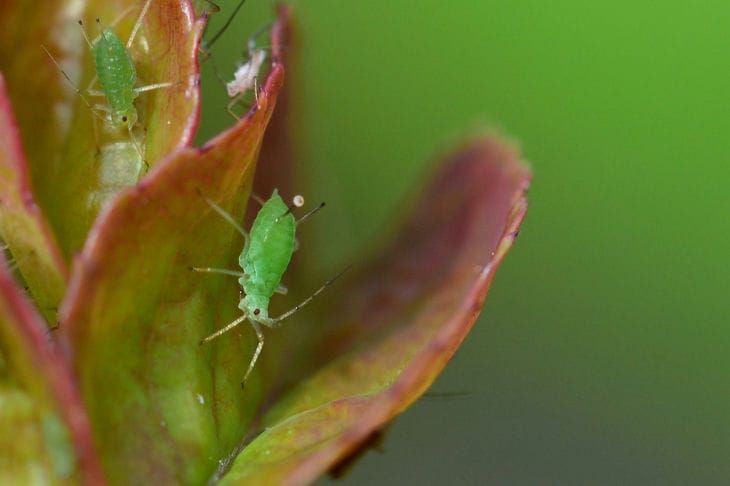Aphids are one of the most common pests that affect indoor plants. There are many reasons for their appearance.
One of the main ones is the transfer of insects with new plants that have not been thoroughly checked for pests.
Weakened plant immunity due to insufficient care also contributes to the spread of aphids.
Warm and dry indoor air creates ideal conditions for the reproduction of these insects.
Folk remedies for fighting aphids
There are many folk methods that allow you to effectively combat aphids on indoor flowers.

One of the most popular methods is to use a soap solution. Soap interferes with the breathing of insects and leads to their death.
To prepare the solution, use laundry soap dissolved in warm water. Plants are treated with this solution using a sponge or sprayer.
Another effective remedy is garlic infusion. To prepare it, several cloves of garlic are crushed and poured with hot water.
The infusion is kept for 24 hours, then filtered and used to spray plants. Garlic has strong insecticidal properties and repels aphids.
Biological control methods
The use of biological methods of aphid control is becoming increasingly popular among gardeners.
One of these methods is the use of entomophages - natural enemies of aphids.
The most effective of them are ladybugs and their larvae. These insects actively eat aphids, significantly reducing their numbers.
You can also use special biopreparations based on bacteria and fungi.
These products work on aphids without harming plants or the environment. They are safe for humans and pets, making them ideal for home use.
Chemicals
If folk and biological methods do not give the desired result, you can resort to the use of chemical preparations.
There are many insecticides designed to combat aphids. When choosing a product, you should pay attention to its safety for indoor plants and people.
To treat plants with insecticides, you must follow the instructions on the package. It is important not to exceed the recommended dosages and to take precautions.
Plants are processed in a well-ventilated room or outdoors to avoid the accumulation of harmful substances in the air.
Prevention of aphids
To prevent aphids from appearing on indoor flowers, it is important to follow a number of preventive measures. One of them is regularly inspecting plants for pests.
New plants should be especially carefully examined before introducing them into your home collection.
Proper plant care also plays a key role in aphid prevention.
It is necessary to maintain the optimum level of humidity and temperature in the room, regularly water and feed the plants. Healthy and strong plants have a stronger immune system and are less likely to be attacked by pests.
Useful tips
Some plants have properties that repel aphids.
For example, lavender and calendula can be planted next to indoor flowers to protect against pests. You can also use essential oils of these plants for spraying. Essential oils not only protect plants from aphids, but also give the room a pleasant aroma.
Earlier we talked about how to help indoor flowers survive their owners’ vacation.








